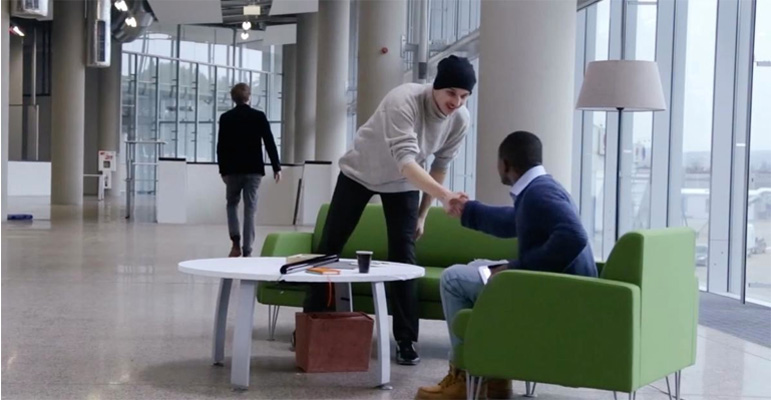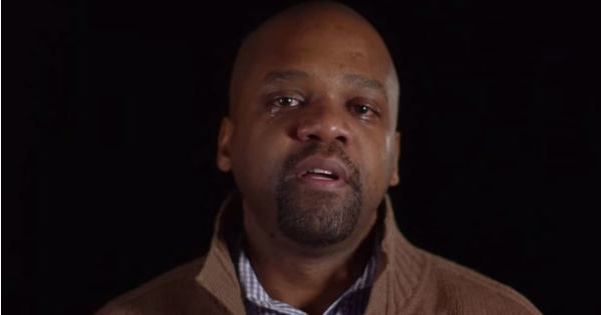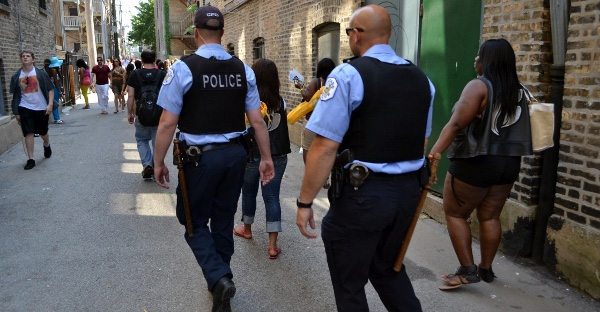This is part of a special Upworthy series on shaping a new language around human rights through the power of storytelling, made possible by the Open Society Foundations.
Read more about our sponsorship policy.
 By Ryan.
By Ryan.
Back in June 2015, Gloucester, Massachusetts, police chief Leonard Campanello announced that his officers would no longer arrest drug users who approached them seeking help.
Instead, the department announced they would refer the drug users to treatment, and front the cost. How much money would it cost?
Would it actually reduce the number of overdose deaths? Would drug users actually trust the police, knowing that admitting to possession could technically get them arrested at any time?
“I had a lot of skepticism,” Chief Campanello said. “I didn’t know if we were going to get one person or a thousand people.”
As part of an experiment, a man asks for help translating a Facebook message he has received.
There’s a man in Lithuania who speaks only English. The message is in Lithuanian. He can’t read it, so he asks some locals to translate it for him.

As he asks one person after another to translate the message for him, two things become obvious.
- He’s received a message full of hate speech.
- Translating it for him is breaking people’s hearts.
6-year-old Kloe was taken from her bed on February 21, 2015. Thanks to a gas station employee, she was back home on February 22.
Missing child Kloe Donohoo 6yoa, taken from 2002 Yorktown, has been found safe. More info coming soon. Thank you all! – Corpus Christi PD (@CorpusChristiPD) February 22, 2015
Kloe was abducted in the middle of the night by a family friend. After she was reported missing, an Amber Alert went out, which, luckily, was seen by a clerk at a local gas station. The clerk recognized Kloe from the alert and tipped off police that he had seen the girl, the man who had taken her, and the van he was driving.
At Manual.co, we tell stories for a better world. Like us on Facebook to get them first:
Doling out advice like this didn’t come easy. Some parents shed some tears. Others smiled uncomfortably.

- “It’s maddening; I get so frustrated and angry about having to prepare my kids for something that they’re not responsible for.”
- “You can put your hands up and cooperate and say that I’m choking and still be killed … then there’s no repercussions.”
- “It doesn’t mean that every police officer is inherently a bad person, but what it does mean is that the police force, that institution, does not look out for your best interest.”
Geeta has two goals: “to create a safe space where uncomfortable conversations about race and civil rights can happen … that allow different communities to experience each other’s realities without feeling accused or attacked” and to educate black kids.
“We do believe that an age-appropriate conversation about the obstacles commonly faced by African-American children will help them adjust to those obstacles and develop coping strategies that will serve them for a lifetime.” – Geeta Gandbhir
To hear more from these brave parents, you can hear their thoughts below.



